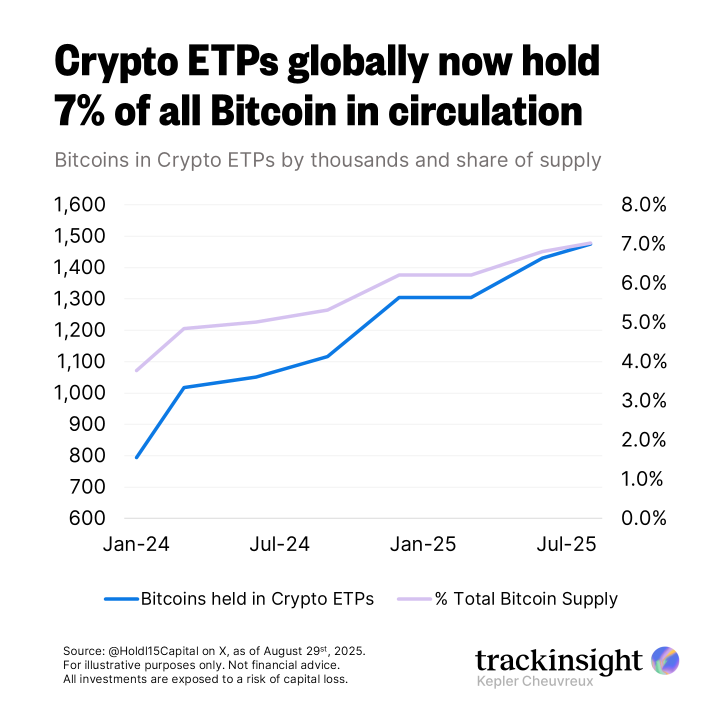
Cryptocurrency exchange-traded funds (ETFs) have rapidly gained traction in the financial mainstream, marking a significant milestone in the industry's evolution. These investment vehicles have seen explosive growth in recent years, attracting a growing number of institutional investors and competing with traditional assets like gold as a key component of diversified portfolios.
ETFs are investment funds that are traded on stock exchanges, offering investors exposure to a diversified portfolio of assets, such as stocks, bonds, or commodities. Cryptocurrency ETFs work similarly, allowing investors to gain exposure to a basket of digital assets without directly owning them. This indirect exposure provides a convenient way for investors to enter the volatile cryptocurrency market without dealing with the complexities of buying, storing, and securing digital currencies.
The rise of cryptocurrency ETFs can be attributed to several factors. Firstly, institutional adoption of cryptocurrencies has been steadily increasing, with major financial institutions and corporations recognizing the potential of digital assets as an alternative investment class. The entry of institutional investors into the cryptocurrency space has lent credibility and legitimacy to the market, driving demand for regulated investment products like ETFs.
Furthermore, the explosive growth of the cryptocurrency market itself has fueled interest in ETFs as a way to capitalize on the potential returns offered by digital assets. Bitcoin, the most well-known cryptocurrency, has experienced significant price appreciation in recent years, attracting both retail and institutional investors looking to profit from the market's volatility.
Cryptocurrency ETFs also present a competitive alternative to traditional assets like gold, which has long been considered a safe-haven asset and a store of value. With its limited supply and decentralized nature, Bitcoin, in particular, has been compared to gold as a digital store of value that can potentially serve as a hedge against inflation and economic uncertainty.
The competition between cryptocurrency ETFs and gold as key assets in investors' portfolios is expected to intensify as the digital asset market continues to mature and gain mainstream acceptance. While gold has a long history as a reliable store of value, cryptocurrencies offer unique advantages, such as divisibility, portability, and transparency, that make them an attractive investment option for a new generation of investors.
In conclusion, the growth of cryptocurrency ETFs signals a significant shift in the investment landscape, as digital assets become increasingly integrated into traditional financial markets. With institutional adoption on the rise and competition with gold heating up, cryptocurrency ETFs are poised to play a pivotal role in shaping the future of investment strategies and portfolio diversification.
Source: https://www.coindesk.com/coindesk-indices/2025/09/10/crypto-for-advisors-crypto-etf-trends

Leave a Reply